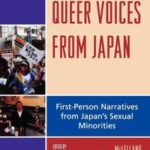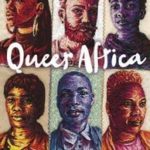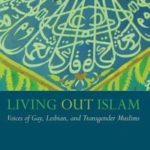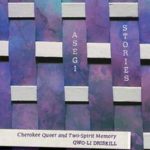To celebrate International Lesbian Day, here are 5 books about international Lesbian lives. Lesbians and other LGBT+ people live all over the world. Our life experiences are different from person to person, country to country. Collections of these stories invite you to step into an unfamiliar life.
These books include personal stories about ourselves. Get exposed to cultures, families, relationships, struggles and triumphs. The exposure to Lesbian life around the world can be powerful. We can connect and see ourselves in the experiences of our others.
I haven’t figured out the origins of International Lesbian Day. But October 8 was probably chosen commemorate the anniversary of Lesbian feminist Anna Rüling’s address at an International Scientific and Humanitarian Committee in Germany on 8th October 1904. In her speech, she criticised the women’s movement for not taking an active role in ending the oppression of lesbians.
Check out these five books that share personal stories from Lesbian lives from around the world. Travel the world without leaving your home!
1. Queer Voices from Japan: First-Person Narratives from Japan’s Sexual Minorities by Mark McLelland
 Queer Voices from Japan examines the wide range of queer voices in Japan. The authors bring together historical and contemporary stories of sexual identities in Japan. These essays trace the evolution of queer voices in Japan. From homosexuality in the Japanese Imperial Army to same-sex experiences in the pre- and post-war periods. They also take a look at the development of Japan’s first gay bars.
Queer Voices from Japan examines the wide range of queer voices in Japan. The authors bring together historical and contemporary stories of sexual identities in Japan. These essays trace the evolution of queer voices in Japan. From homosexuality in the Japanese Imperial Army to same-sex experiences in the pre- and post-war periods. They also take a look at the development of Japan’s first gay bars.
Stories include male-to-female and female-to-male transgender voices and experiences. Queer Voices from Japan is a compelling read.
2. Lesbian Lives In Soviet And Post-Soviet Russia: Post/Socialism and Gendered Sexualities by Francesca Stella

3. Queer Africa 2 – New Stories by Makhosazana Xaba; Karen Martin
 26 stories by writers from Kenya, Nigeria, Rwanda, Sierra Leone, Somalia, South Africa, Uganda and the USA present exciting and varied stories on life. There are stories on desire, disruption and dreams; others on longing, lust and love. The stories show a range of human emotions and experiences from LBGT+ people in the African continent.
26 stories by writers from Kenya, Nigeria, Rwanda, Sierra Leone, Somalia, South Africa, Uganda and the USA present exciting and varied stories on life. There are stories on desire, disruption and dreams; others on longing, lust and love. The stories show a range of human emotions and experiences from LBGT+ people in the African continent.
Centred in these stories and in their attendant relationships is humanity. The writers showcase their artistry in storytelling in thought provoking and delightful ways.
4. Living Out Islam: Voices of Gay, Lesbian, and Transgender Muslims by Scott Siraj al-Haqq Kugle
 Living Out Islam documents the rarely-heard voices of Muslims. These LGBT+ people live in secular democratic countries and share their stories. The author interviewed Muslim activists, and weaves in the importance of the solidarity of support groups. This is in the effort to change social relationships and achieve justice. This isn’t about being “out” as opposed to being “in the closet.” Rather, it is about finding ways to live out Islam with dignity and integrity. People reconcile their sexuality and gender with their faith and reclaiming Islam as their own.
Living Out Islam documents the rarely-heard voices of Muslims. These LGBT+ people live in secular democratic countries and share their stories. The author interviewed Muslim activists, and weaves in the importance of the solidarity of support groups. This is in the effort to change social relationships and achieve justice. This isn’t about being “out” as opposed to being “in the closet.” Rather, it is about finding ways to live out Islam with dignity and integrity. People reconcile their sexuality and gender with their faith and reclaiming Islam as their own.
5. Asegi Stories by Qwo-Li Driskill

